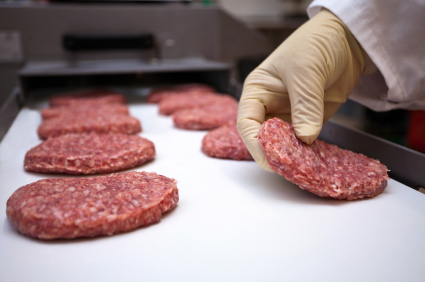From its failure to rein in abuse of farm subsidies to its misguided efforts on international trade, the Obama USDA has disappointed many progressives. But let’s take a moment to offer kudos to USDA Chief Tom Vilsack for two positive developments in one week.
On Thursday, the USDA responded to revelations first published in USAToday regarding safety lapses in the school lunch program. The report indicated that meat which wouldn’t meet safety standards at most national fast food chains was nonetheless sold into the school lunch system and fed to school children. In addition, USAToday also documented a broken system at the USDA for recalling tainted food from schools. Piling on, the NYT revealed a few weeks ago that a form of meat filler commonly used in school lunch meat, aka “pink slime,” was potentially unsafe and yet escaped USDA testing on a routine basis.
Well, the USDA has had enough:
The U.S. Department of Agriculture announced sweeping steps Thursday to “assure the safety and quality of food” purchased for the National School Lunch Program. The measures include tightening requirements on companies that supply ground beef to schools, testing the beef more often and more thoroughly, and improving communications within the USDA to “identify potential food safety issues” before children get sick.
… The measures outlined Thursday are intended to … [bring] the standards and testing protocols in line with those used by the most selective restaurants and retailers. “It’s a big deal,” food safety consultant David Theno said of the USDA measures. He said the moves will push companies to “play to a higher standard” if they want to continue to supply food to schools.
The USDA also pledged to review the safety records of its school lunch suppliers more carefully and bar companies that have had repeated problems with their commercial products.
In an interesting wrinkle, the USDA, in response to a request from Rep. George Miller, has asked the National Academy of Sciences to review the department’s ground beef purchasing program and make recommendations for improvement. The non-partisan NAS is charged with advising the federal government on scientific and technical matters — and will allow the USDA to depoliticize attempts to reform the commodity purchasing program. So good news all around.
The second positive development came today with the USDA’s announcement that it is totally revamping the controversial “National Animal Identification Program.” What started as a voluntary program inspired by a mad-cow disease scare during the Bush administration threatened to morph into a mandatory, full life-cycle tracking program for every farm animal (pets included) in the nation. Facing the controversy, Vilsack embarked on a series of “listening tours” last summer to get feedback from farmers and got an earful.
In response, he has all but scrapped the national system in favor of a to-be-determined new state-level program focused on interstate commerce. Now, this has complications of its own (especially for farmers who send their cattle across state lines for slaughter), but, significantly, whatever the new system is, it will all but exempt small and medium-sized producers who sell locally. Given that many small farmers thought a mandatory animal tracking system could put them out of business, this news comes as a great relief.
These fixes may not be wholesale reform, but they do represent progress. Let’s hope these are the seeds, and not the crumbs, of change.



